1. Beyoncé’s CMA Performance Backlash
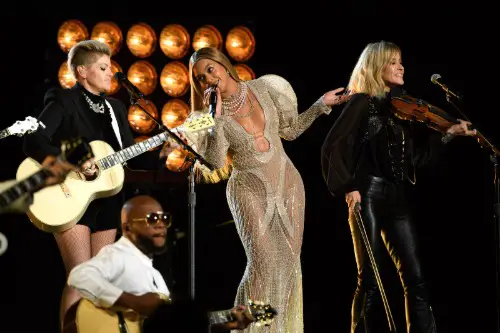
When Beyoncé performed “Daddy Lessons” with The Chicks at the 2016 Country Music Association Awards, the backlash was swift and, frankly, ugly, according to Daysia Tolentino from NBC News. Critics claimed she didn’t belong at the CMAs, even though her performance was rooted in Americana and Southern culture. Many saw the outrage as racially motivated, pointing out the lack of similar criticism for pop crossovers by white artists. The CMA initially tried to remove mention of her performance from their promotional material, sparking even more outrage.
The moment revealed how narrow some fans’ definitions of country music really were. Beyoncé’s performance was musically sound and thematically on-point, but it clashed with cultural gatekeeping. For others, it was a refreshing moment of genre-blending that brought new eyes to country music. It showed how deep the genre’s identity issues really run.
2. The Dixie Chicks vs. George W. Bush
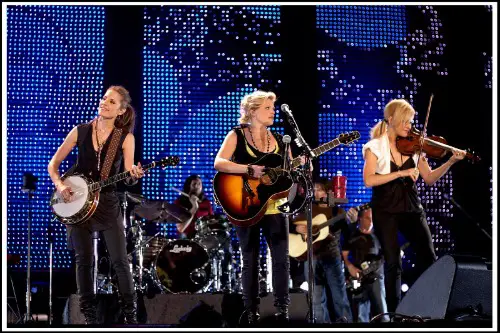
In 2003, during a concert in London, Natalie Maines of the Dixie Chicks told the crowd they were ashamed that President George W. Bush was from Texas, Steve Knopper from Billboard explains. The backlash was immediate and brutal, especially among conservative country music fans. Radio stations pulled their songs, fans boycotted their music, and the group received death threats. It was a defining moment where politics and country music collided with full force.
The group never quite regained their mainstream country footing, though they remained musically active and critically respected. Their fallout revealed a deep divide in the fan base over free speech and patriotism. It also sparked a broader conversation about whether country artists could speak out without career-ending consequences. Looking back, it reshaped the boundaries of acceptable discourse in the genre.
3. Morgan Wallen’s Racial Slur Caught on Camera

In early 2021, Morgan Wallen was caught on video using a racial slur after a night out, and the clip quickly went viral. The response was swift: his record label suspended him, radio stations pulled his music, and he was disqualified from major award shows, according to Mark Savage from the BBC. Despite this, his album sales actually surged, which sparked another wave of controversy. It left many questioning what accountability really looks like in country music.
Wallen apologized multiple times and stepped away from the spotlight for a period. The incident forced a reckoning about racism and who gets forgiveness in the genre. Some praised his attempts to make amends, while others felt the reaction was too forgiving. It highlighted the genre’s longstanding struggle with inclusion and accountability.
4. Jason Aldean’s “Try That in a Small Town” Controversy
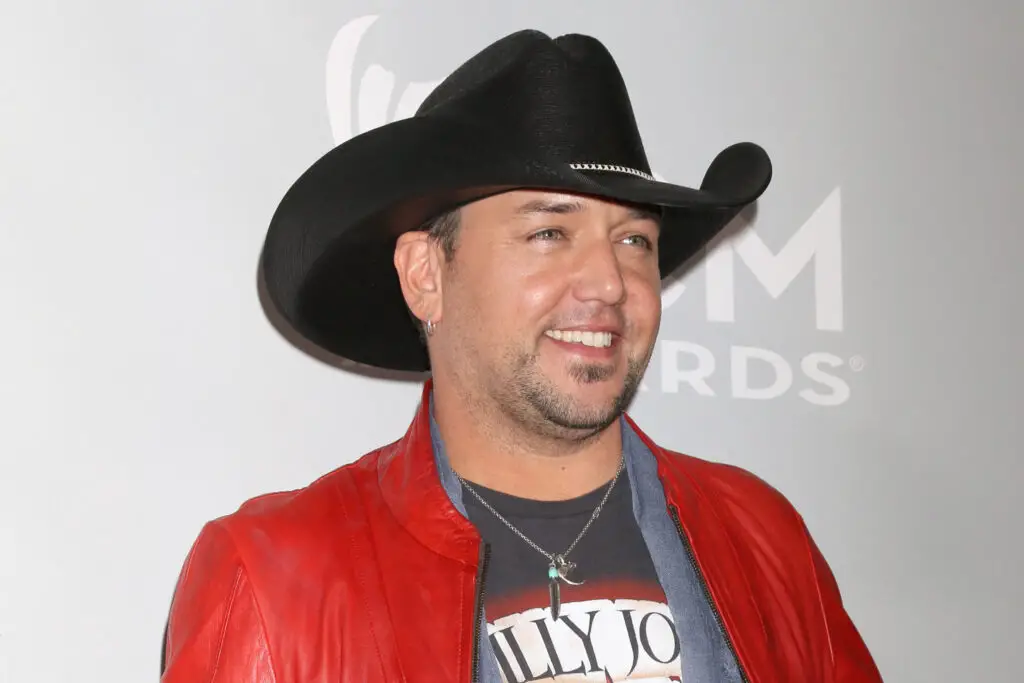
In 2023, Jason Aldean released “Try That in a Small Town,” and the music video lit a firestorm of criticism, according to Emily Olson from NPR. The song’s lyrics, combined with imagery of protests and violence, were interpreted by many as glorifying vigilante justice. Critics pointed out that the video was filmed at a site of a historic lynching, which Aldean later denied knowing. CMT pulled the video, and social media erupted on both sides of the issue.
Aldean defended the song as a message about law and order, not race or division. Still, the timing and visuals stirred up painful national conversations. Supporters rallied around him, framing it as a free speech issue. But for many, it symbolized how country music can sometimes be used to mask deeper cultural tensions.
5. Lil Nas X and the “Old Town Road” Billboard Drama
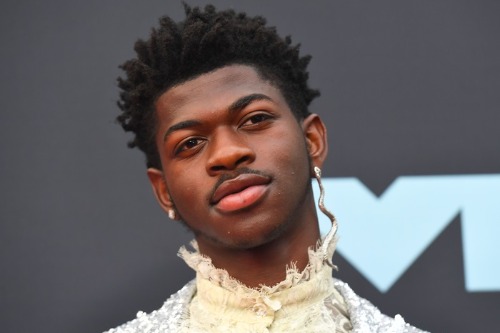
Lil Nas X’s viral hit “Old Town Road” was removed from Billboard’s Hot Country Songs chart in 2019 because it “did not embrace enough elements of today’s country music.” The move sparked a fierce debate over what defines the genre and who gets to be included. Many felt race played a significant role in the decision, especially since the song incorporated cowboy imagery and country themes. It wasn’t until Billy Ray Cyrus joined a remix that the industry began to take it seriously.
The controversy exposed how gatekeeping works in the genre. Even though the song resonated with rural listeners and used country motifs, it was treated as an outsider’s novelty. It raised questions about authenticity and who’s allowed to innovate within country music. The incident remains one of the clearest examples of genre boundaries being tested—and enforced.
6. Kacey Musgraves’ LGBTQ+ Advocacy
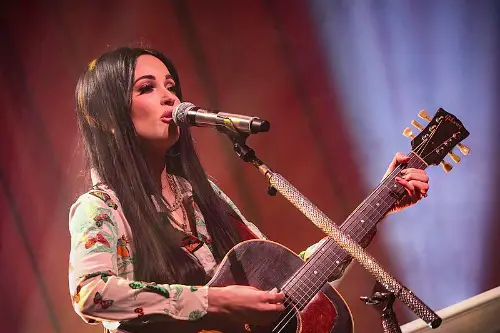
Kacey Musgraves broke traditional country molds when she openly supported the LGBTQ+ community, especially with her 2013 song “Follow Your Arrow.” While the song was praised by critics, it received limited radio play, especially in more conservative markets. Her stance earned her both admiration and criticism, proving how polarizing such advocacy could be in the country scene. Some labeled her a trailblazer, while others saw her as too progressive for the format.
Musgraves stuck to her values and carved out a loyal fanbase beyond mainstream country. Her career choices have influenced other artists to be more open about inclusion and identity. But her journey also highlighted the barriers artists face when their views clash with traditional expectations. It became a turning point for progressive voices in a historically conservative genre.
7. Toby Keith’s Post-9/11 Patriotism and Feuds
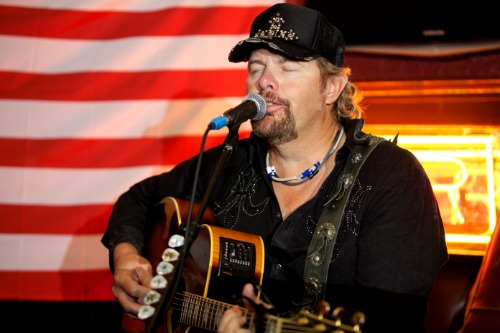
After 9/11, Toby Keith’s “Courtesy of the Red, White and Blue” became a rallying cry for American pride—but not without controversy. The song’s aggressive tone, especially the line “we’ll put a boot in your ass,” led to a feud with Natalie Maines of The Dixie Chicks. He also had public disagreements with other artists who questioned the U.S. invasion of Iraq. The patriotism was real, but so was the polarization.
Keith embraced his role as a symbol of blue-collar nationalism, which solidified his fan base but alienated others. His stance reflected the mood of many Americans at the time, but critics argued it promoted jingoism. The feud with The Chicks turned personal, even involving doctored images shown at concerts. That era showed how quickly country music could become a political battleground.
8. Taylor Swift’s Pop Crossover

Taylor Swift started in country, but by the time she released her 2014 album 1989, she’d fully transitioned to pop. The move angered some traditional country fans and even prompted debates about what qualifies as “country enough.” Despite winning awards like the CMA’s Entertainer of the Year early in her career, some gatekeepers never accepted her. When she made the switch, it felt like a loss to some fans and a betrayal to others.
Swift, however, paved a new path for artists who don’t want to stay boxed into one genre. Her departure sparked a wave of crossover experimentation from younger country stars. The controversy wasn’t just about her music—it was about what her success said about the future of the genre. She showed that country could be a stepping stone, not a destination.
9. Hank Williams Jr. Dropped from Monday Night Football
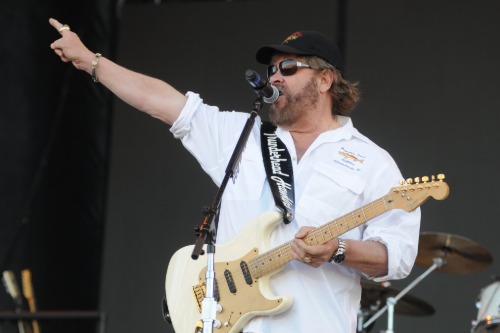
In 2011, ESPN dropped Hank Williams Jr. from its Monday Night Football opening after he made controversial comments comparing President Obama to Hitler. The network said the remarks were not aligned with its values, leading to a public spat between Williams and ESPN. Williams defended his words as political hyperbole, not literal hate speech. But the damage to his image and brand partnership was done.
Fans were split—some praised his outspokenness, others condemned his rhetoric. Williams leaned into his outlaw image even more after the incident. It served as a reminder that political statements can have major commercial consequences. The episode remains a cautionary tale about how quickly the culture can turn.
10. Garth Brooks Lip-Syncing at the CMAs
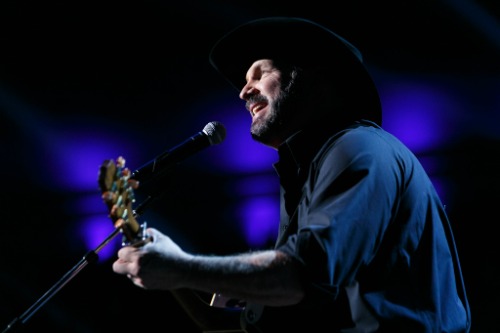
In 2017, Garth Brooks admitted to lip-syncing during his performance at the Country Music Association Awards. The revelation drew heavy criticism from fans and fellow artists, especially since he had just won Entertainer of the Year. Brooks said his voice was tired from touring and he didn’t want to risk a poor vocal. Still, many felt lip-syncing was inexcusable for a live country show.
The backlash showed just how much authenticity matters in country music. Fans expect real instruments, real voices, and real emotion. While Brooks remained a respected figure, the incident left a blemish on his otherwise stellar legacy. It was a rare moment when the genre’s biggest star took heat for faking it.
11. Maren Morris Taking on the “Boys Club”
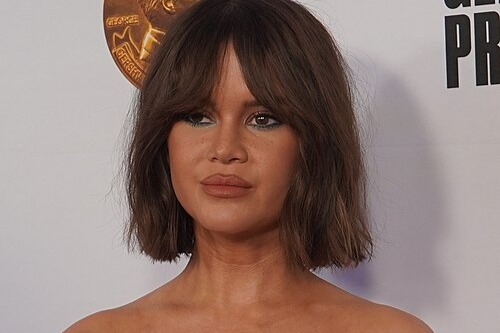
Maren Morris has been outspoken about the gender imbalance in country radio and festivals. In 2019, she called out country radio for its lack of female artists, pointing out how rarely women hit the top of the charts. Her advocacy came with risks, but she gained a following among fans hungry for change. Critics labeled her a disruptor, while others dismissed her concerns as whining.
Still, Morris didn’t back down and continued to use her platform to push for equity. She’s been part of multiple all-female tours and collaborated across genres. Her stance helped bring attention to longstanding systemic issues in country music. Though some doors closed for her, others opened—especially outside the genre.
12. Olivia Newton-John’s Country Win
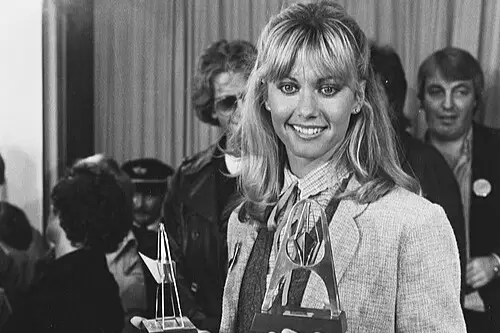
Back in 1974, Olivia Newton-John won the CMA Award for Female Vocalist of the Year—and it caused a huge uproar. Traditionalists were furious that a pop-leaning, non-American artist had taken home one of country’s top honors. It even led to the creation of the Association of Country Entertainers, which aimed to keep country music “pure.” That reaction seems almost quaint now, but it was serious business at the time.
The controversy highlighted early anxieties about crossover appeal and commercialism. Newton-John’s win symbolized a shift that many weren’t ready for. Today, she’s considered a pioneer in blending genres, but the backlash she faced was real and intense. It showed how protective—and sometimes insular—the country world could be.


